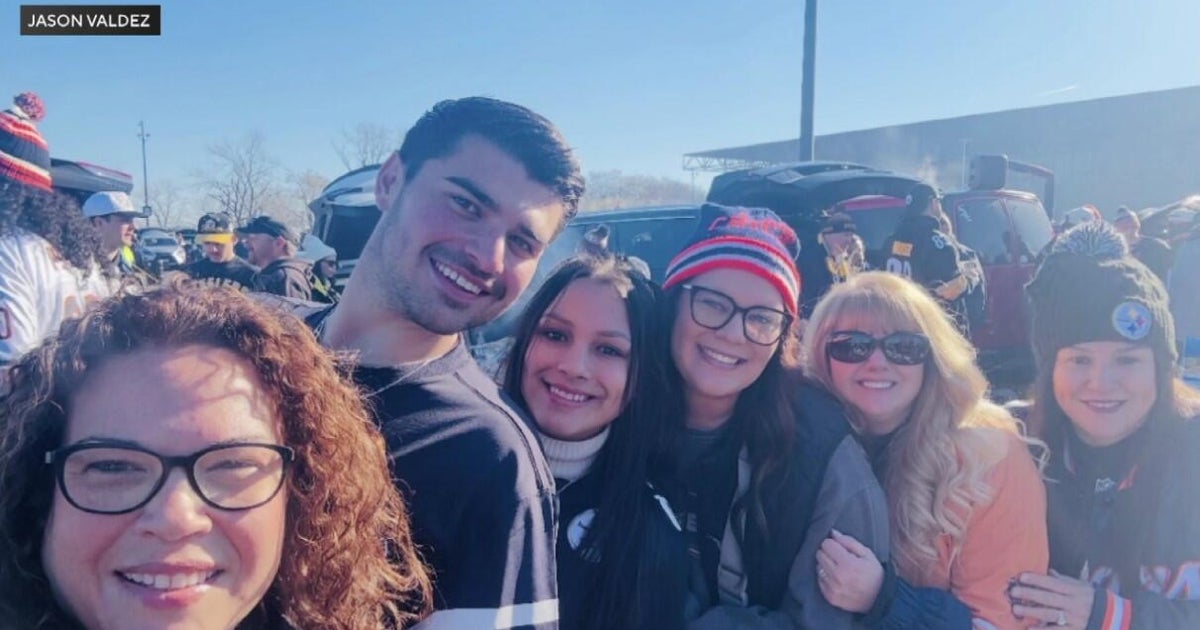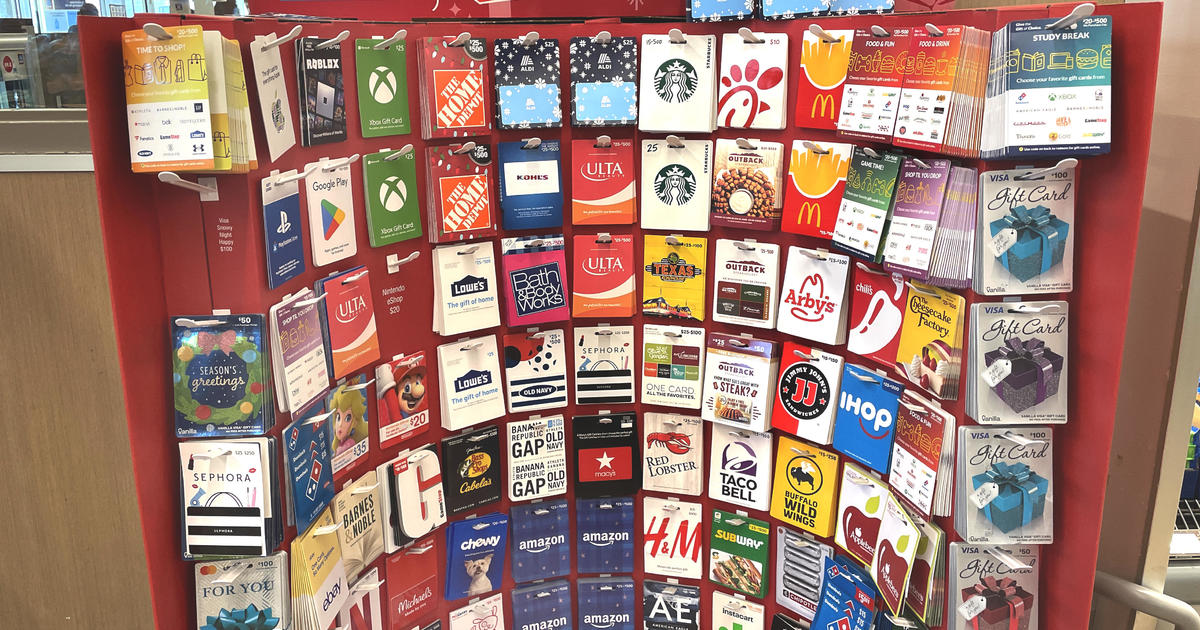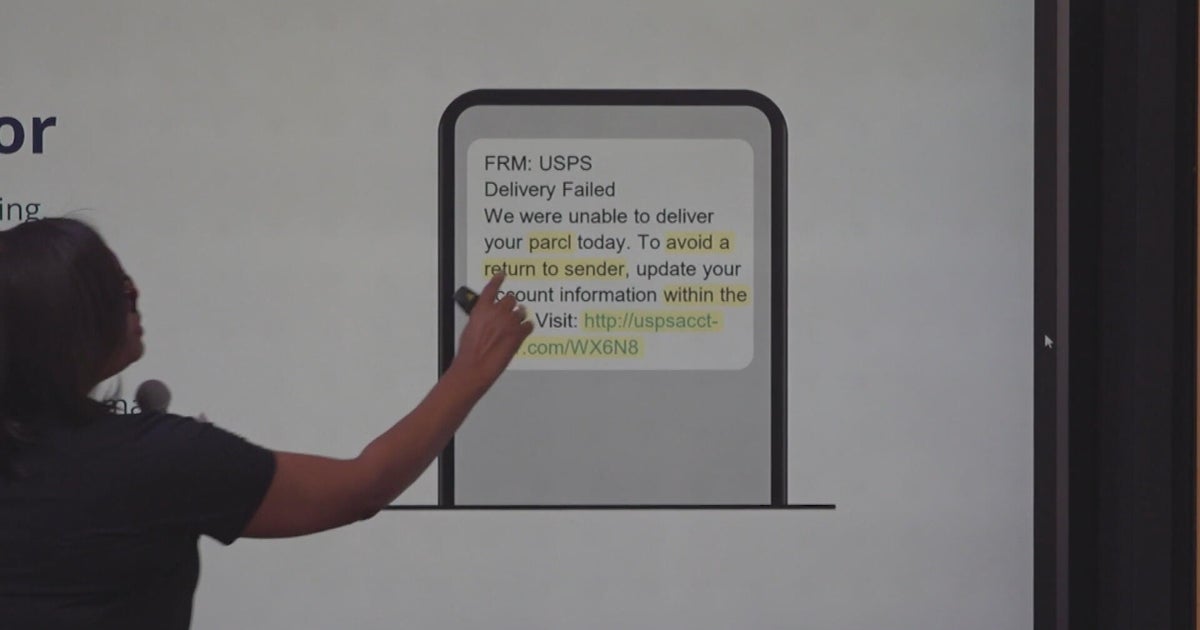Woman loses nearly $25,000 to scammer claiming to be Chase Bank investigator
CHICAGO (CBS) -- A Chicago woman saving for a house lost almost $25,000 to a scammer – in a fraud that all started with a simple text.
As CBS 2's Lauren Victory reported, the Better Business Bureau on Friday sent out a news alert about this scam. Investigators are seeing a steep incline in the number of complaints involving fake fraud alert text messages.
Songwriter Monika Jedrzejek pounds electronic the piano with rage. She never thought it would be so cathartic – but given what happened, it's not a surprise.
"Just anger," she said. "Lots of frickin' anger."
Jedrzejek has been on an emotional roller coaster ever since receiving a supposed fraud alert by text message with the real Chase Bank phone number.
Then came the calls.
"He seemed very knowledgeable about Chase," Jedrzejek said.
Jedrzejek was not asked for account information, her Social Security number, or her password.
"Very customer-service oriented," was how Jedrzejek described the person on the phone – adding that at the time, she was "not worried at all."
The Chase Bank impersonator then sold her a tale about an internal investigation of employees.
Jedrzejek said she was told: "We're not sure if it's a teller, someone that's a teller, a part of wire services. It could be a combination of both."
Jedrzejek agreed to share her screen so the man could "study her activity."
"He said someone was trying to wire money over to China and wired this and that, 'but we actually - part of credit fraud - we protect you from that,'" she said.
The scammer built trust over several days – until she was convinced to wire money to a man in India who the fake Chase investigator was pretending to target.
Jedrzejek said she was told: "You need to act confident. You need to make sure that you're saying all these things over the phone so that we can record it, and trap this person."
Her $24,500 went through – but did not come back as promised.
"They're so good at the counterfeit right now," said Steve Bernas, president and chief executive officer of the Chicago Better Business Bureau.
Bernas said bank impostor scams are on the rise – especially ones that start with a text.
Another red flag, he said, is that "bank is not going to call you up and ask you to do a sting on their own employees."
In its alert, the Better Business Bureau said scam victims often receive a text message that looks like a fraud alert from their bank – claiming unusual activity in their account.
The BBB said it may read: "Bank Fraud Alert – Did you approve a transaction for $1,000? Reply YES or NO." Anyone who replies will be pursued, since the scammer is tipped off that they have an active number.
As happened to Jedrzejek, the BBB says the scammer will call to follow up with a call from someone claiming to be a bank representative – with a number on caller ID that appears to be from the bank.
Jedrzejek is working to accept her mistake through music therapy. She posted this Instagram reel:
"I'm telling everyone about it now about this, because I don't want this to happen to anybody else," she said. "Honestly, it's the worst feeling."
Jedrzejek told us she truly thought that granting the wire transfer was part of the Chase investigation, and that she was helping other customers by catching a bad bank employee.
She said real Chase reps told her they cannot issue a credit, because she approved the nearly $25,000 transaction.
Bank investigators reviewed her case again on Friday and stand by their decision:
"We're sorry Ms. Jedrzejek's was a victim of a scam. We reviewed her case again and confirmed our decision. We worked with her to submit a wire recall request with the receiving bank, however those requests are rarely successful."
Chase also passed along the following tips to avoid becoming the victim of a scam:
- Consumers should NEVER share their banking password, one-time passcode or send money to someone who tells them that doing so will prevent fraud on their account.
- Bank employees won't call, text or email consumers asking for this information, but scammers will! Similarly, bank employees won't ask consumers to screen share their mobile device or computer to help them with their account.
- If you want to be sure that you are speaking to a real employee from your bank, call the number at the back of your debit or credit card OR visit your local branch.
Meanwhile, the BBB also just updated its database of fraud complaints this week. The BBB Scam Tracker allows consumers to search phone numbers, scenarios, and more to see if someone else has reported a scam similar to one you experienced – or are suspicious of.







